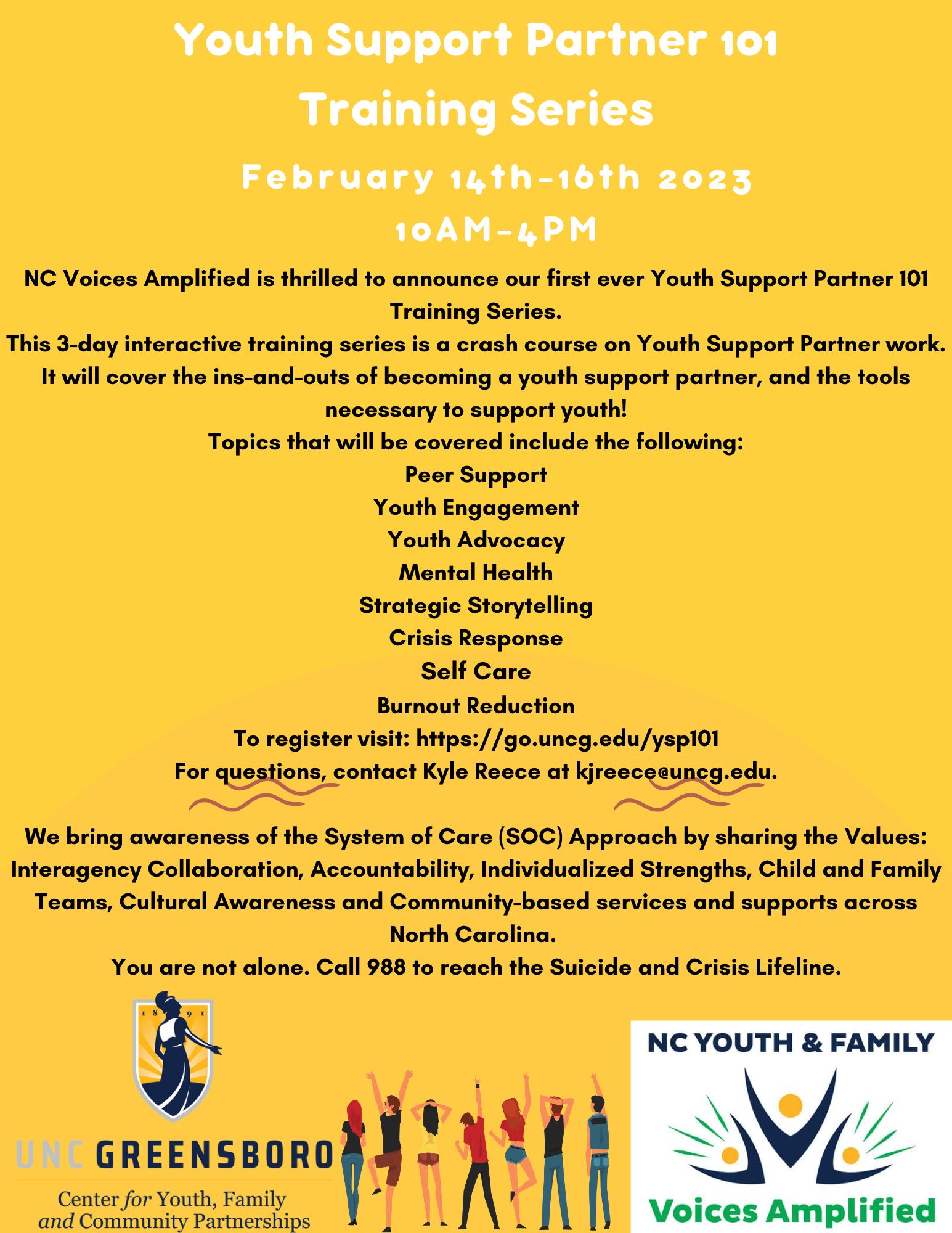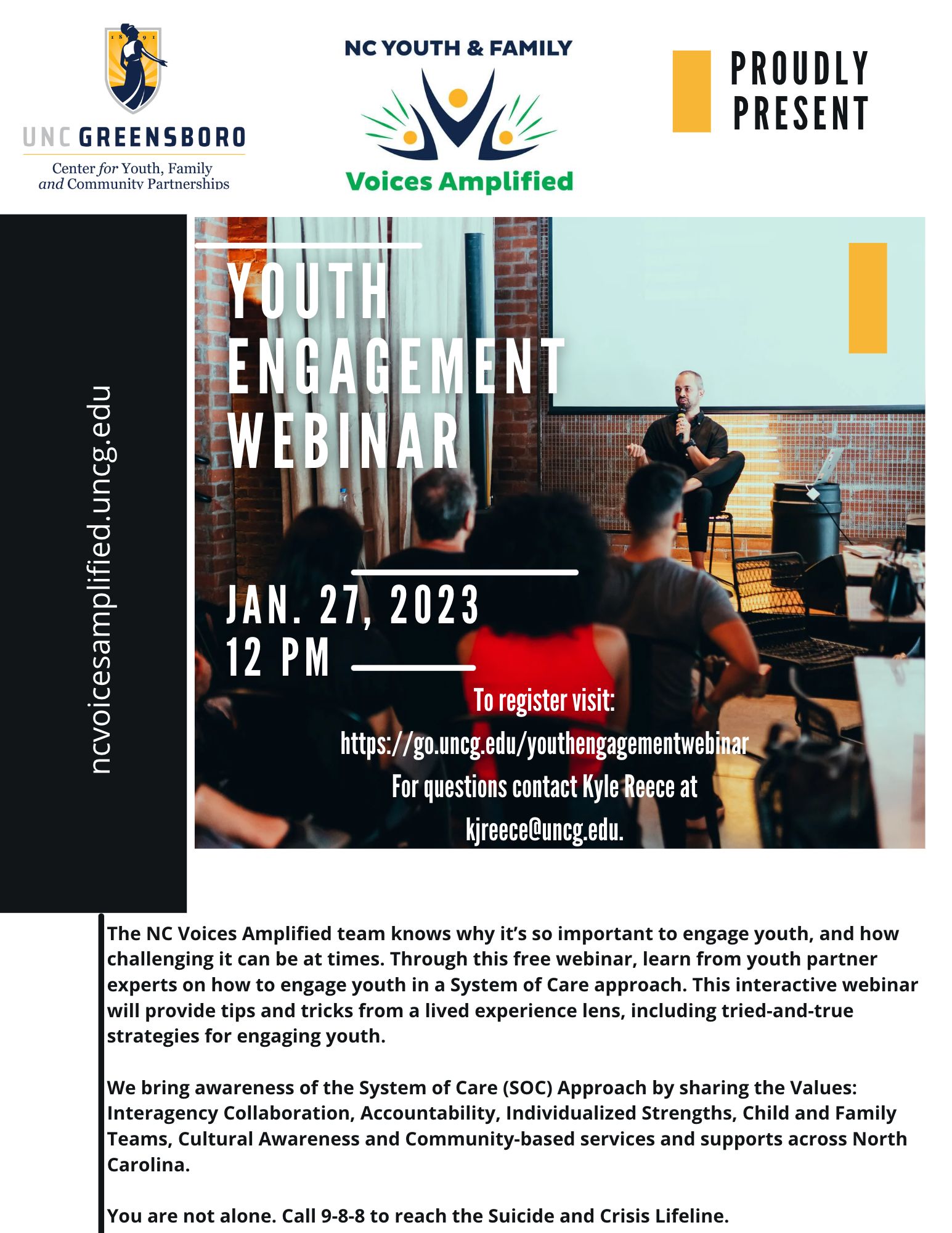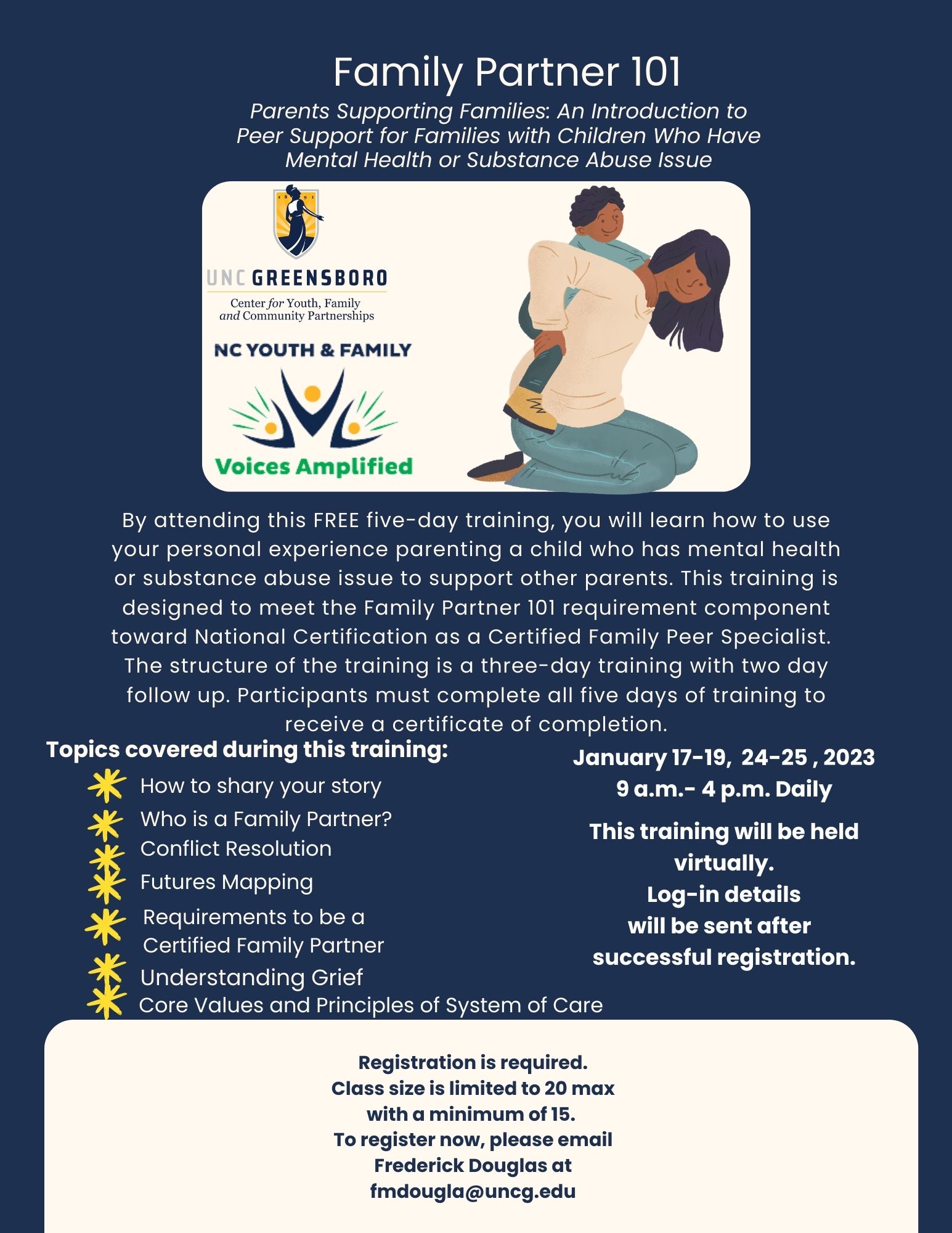Upcoming Wellness Recovery Action Plan (WRAP) Training: June 22, 2023
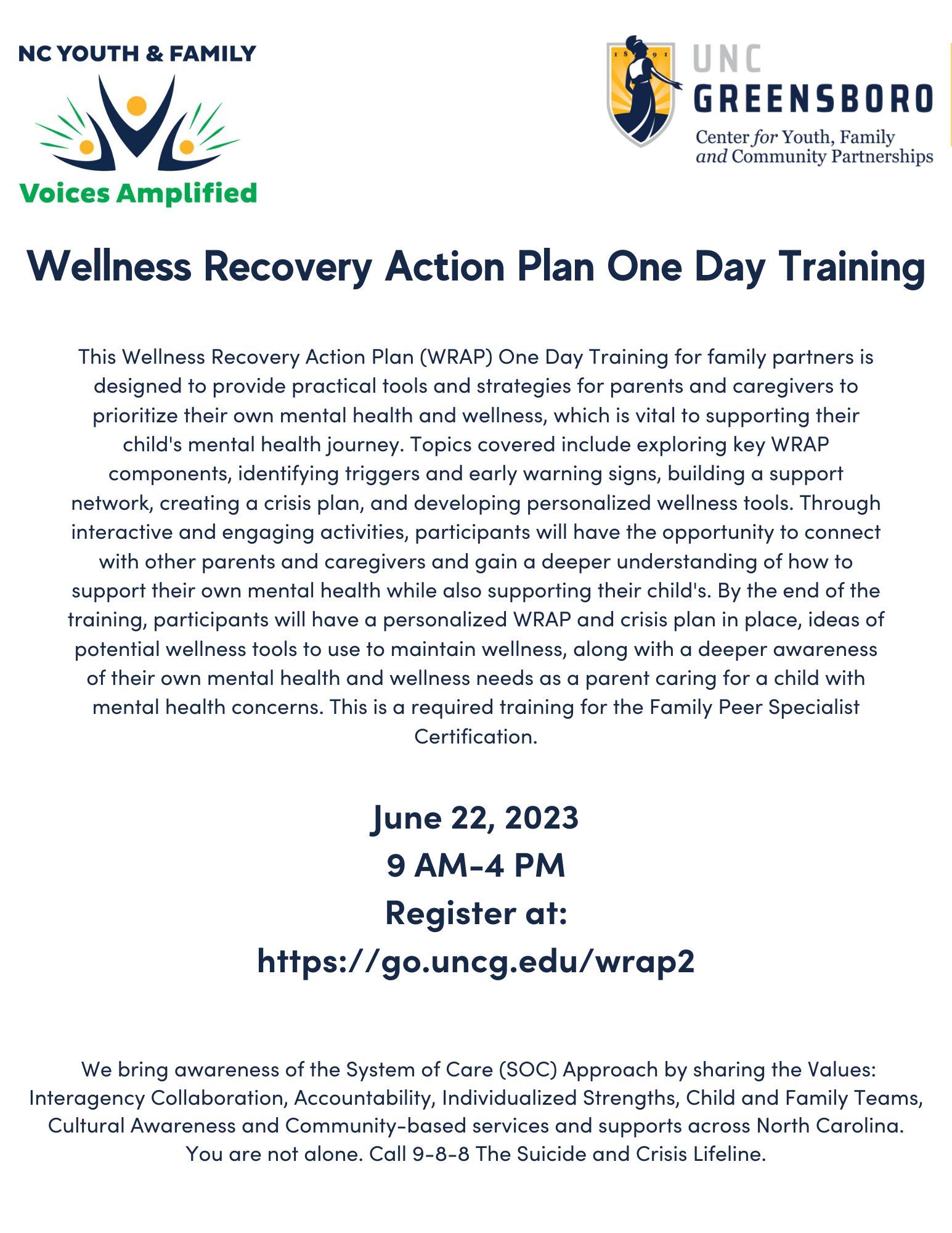
NC Youth & Family Voices Amplified will offer this free, virtual training on Wellness Recovery Action Plan (WRAP) Training. Participants who complete the program will receive a certificate of completion to document their attendance. See below for additional details:
- How to register: Please click here to access and complete the registration form.
- Date and time of the trainings: June 22, 2023 9 a.m. -4 p.m.
- Program format: The training will be held virtually via Zoom.
- Intended audience: Priority will be given to current and prospective Family and Youth Peer Support Partners. Participants will receive confirmation if they are approved to attend this training, and only approved participants will receive the Zoom links to participate.
- Cost of the training: This training is free to attend, thanks to the generous support of the NC DHHS Division of Child and Family Well-Being.
- Presenters: This training will be presented by Amber Reed, MA, QP, NBC-HWC, CNWE, RYT 200
Owner & CEO, Heartmath Certified Trainer & Clinical Practitioner.
- Who to contact for additional information: Please contact Frederick Douglas, Family Training Coordinator, at fmdougla@uncg.edu for additional information about this training program.
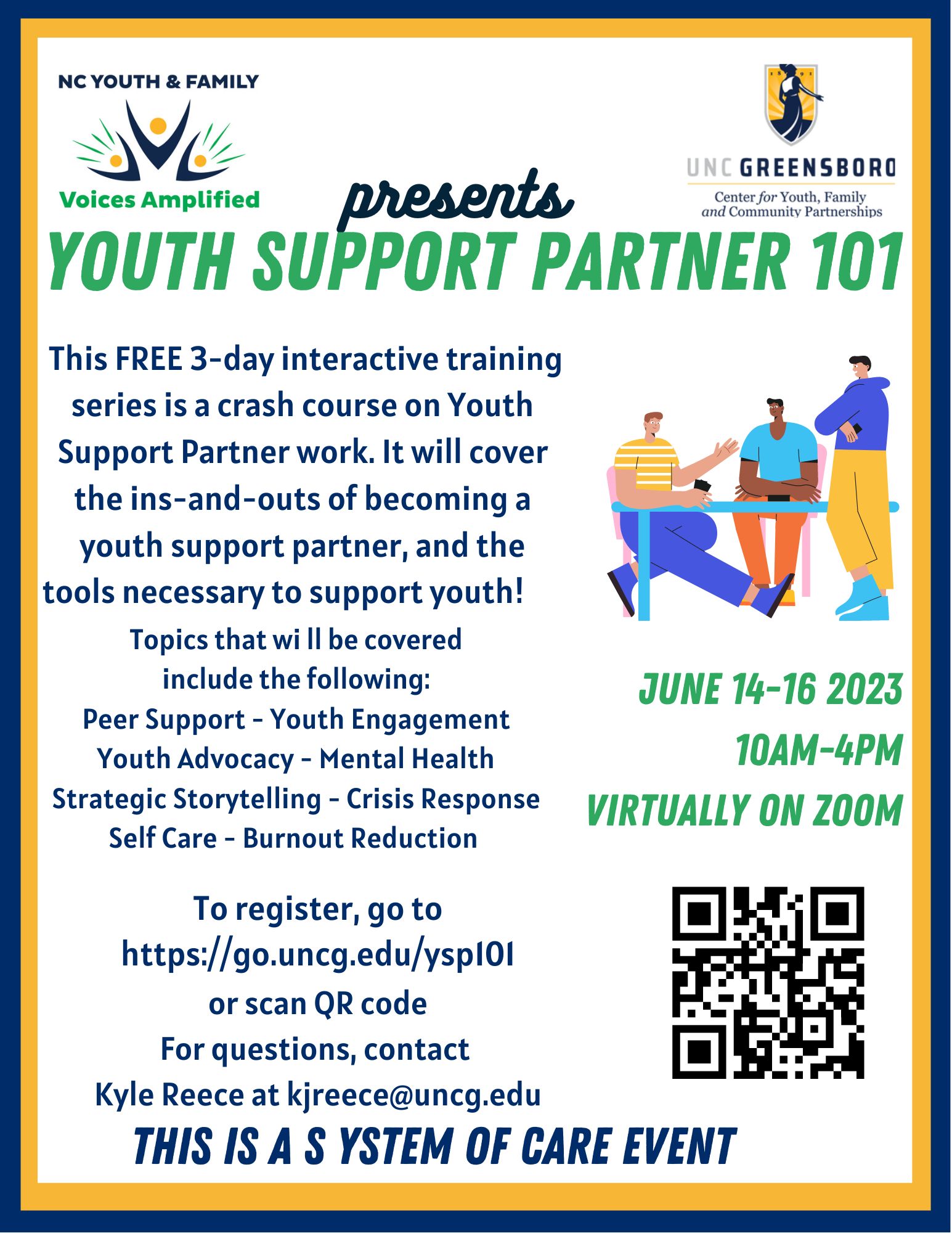
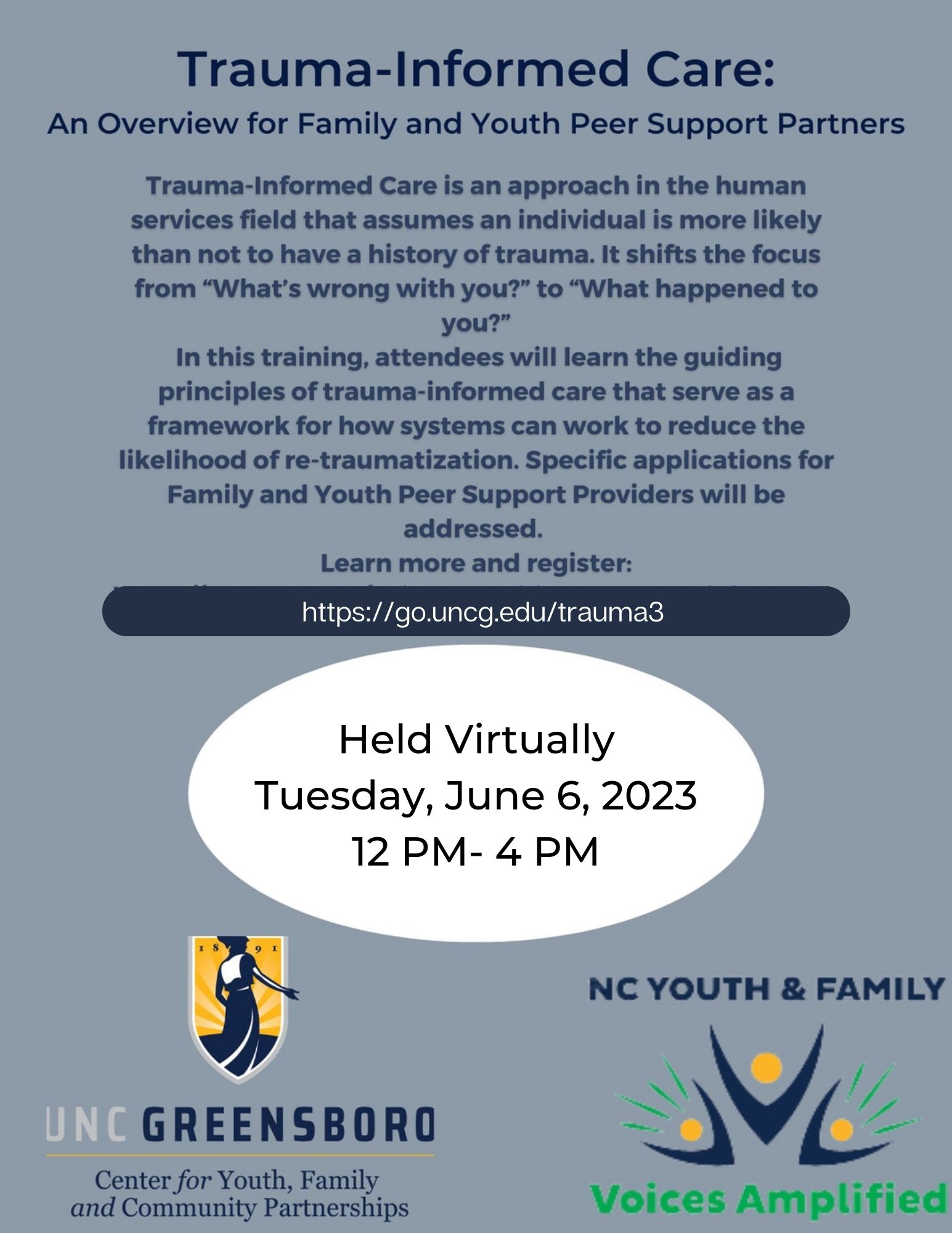
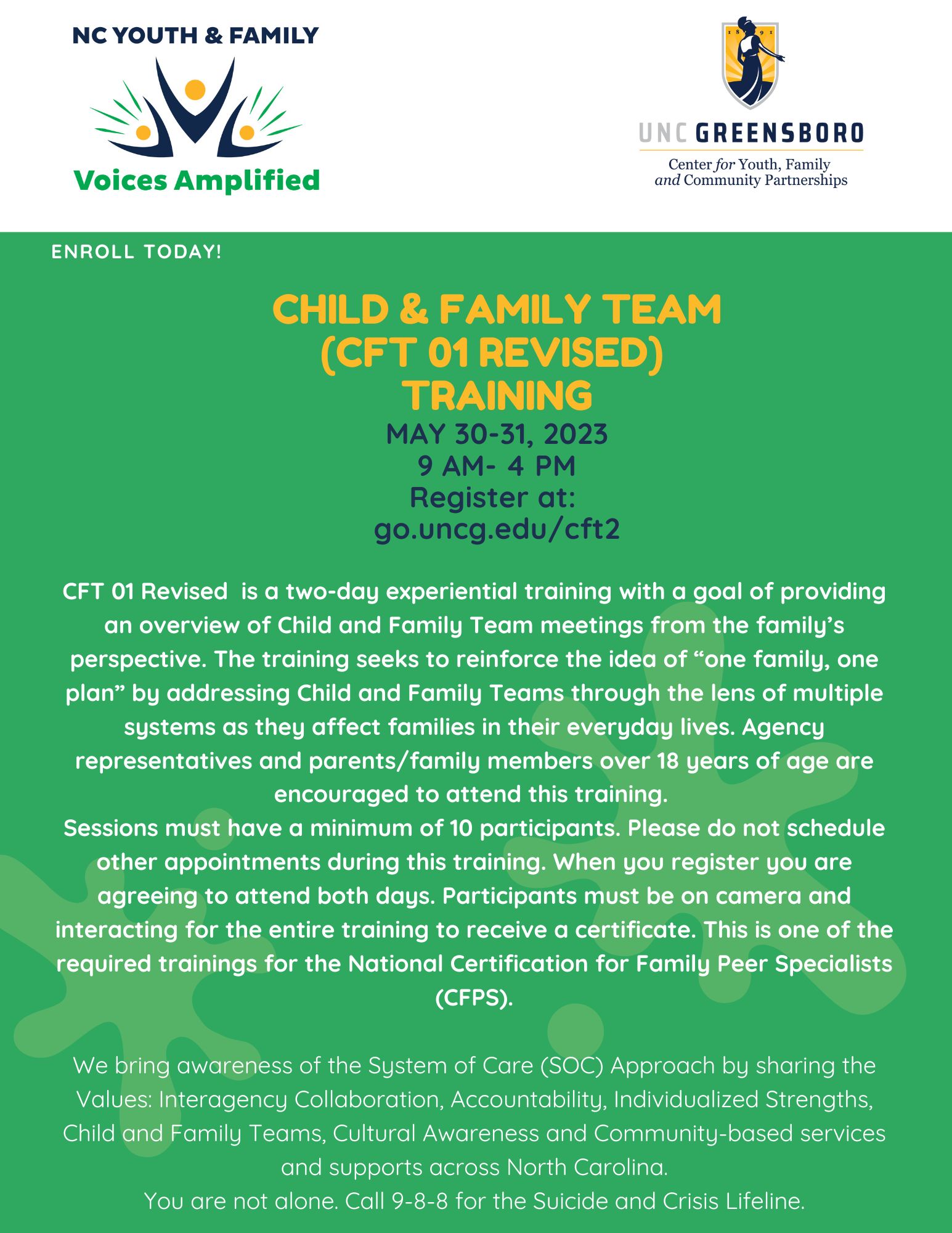
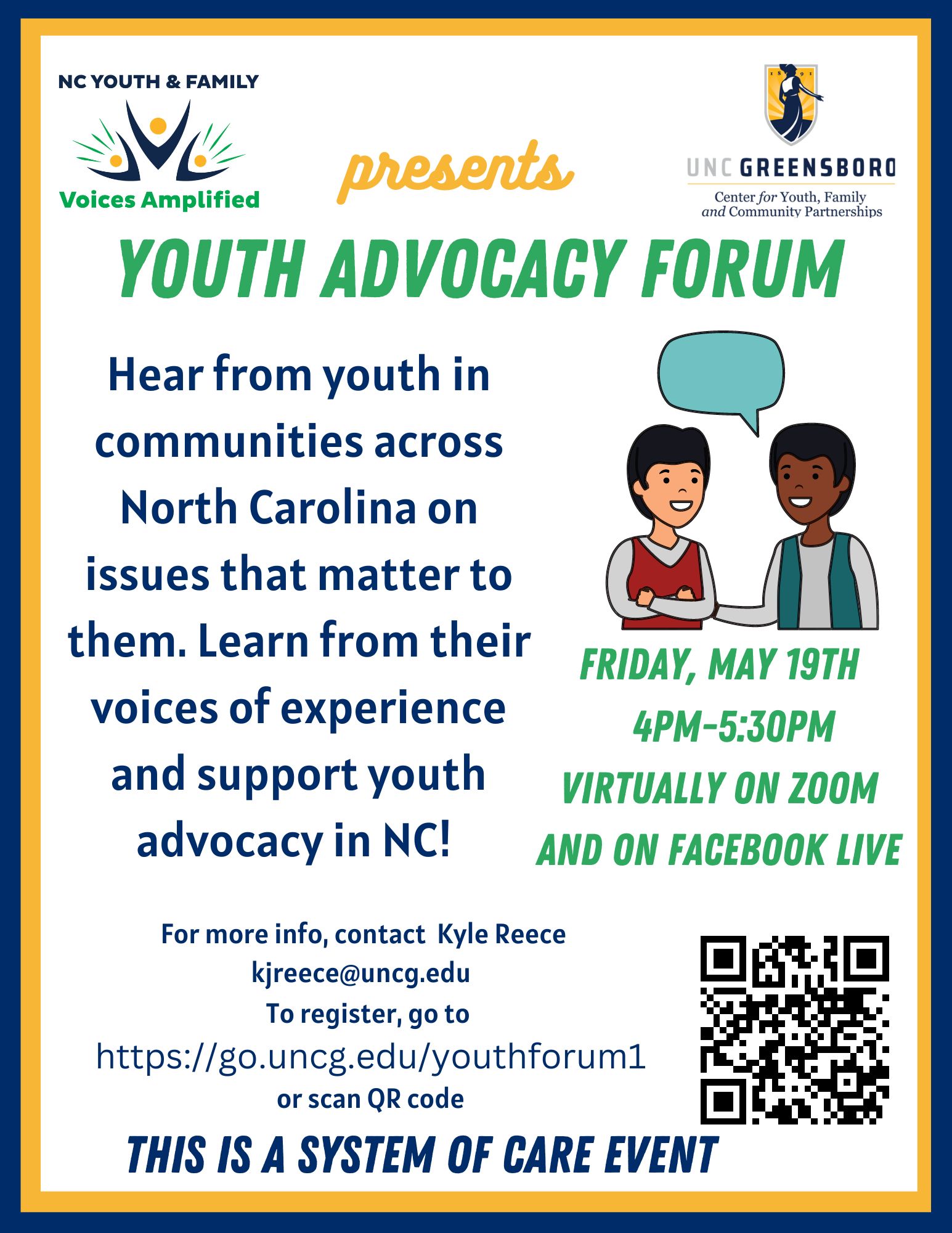
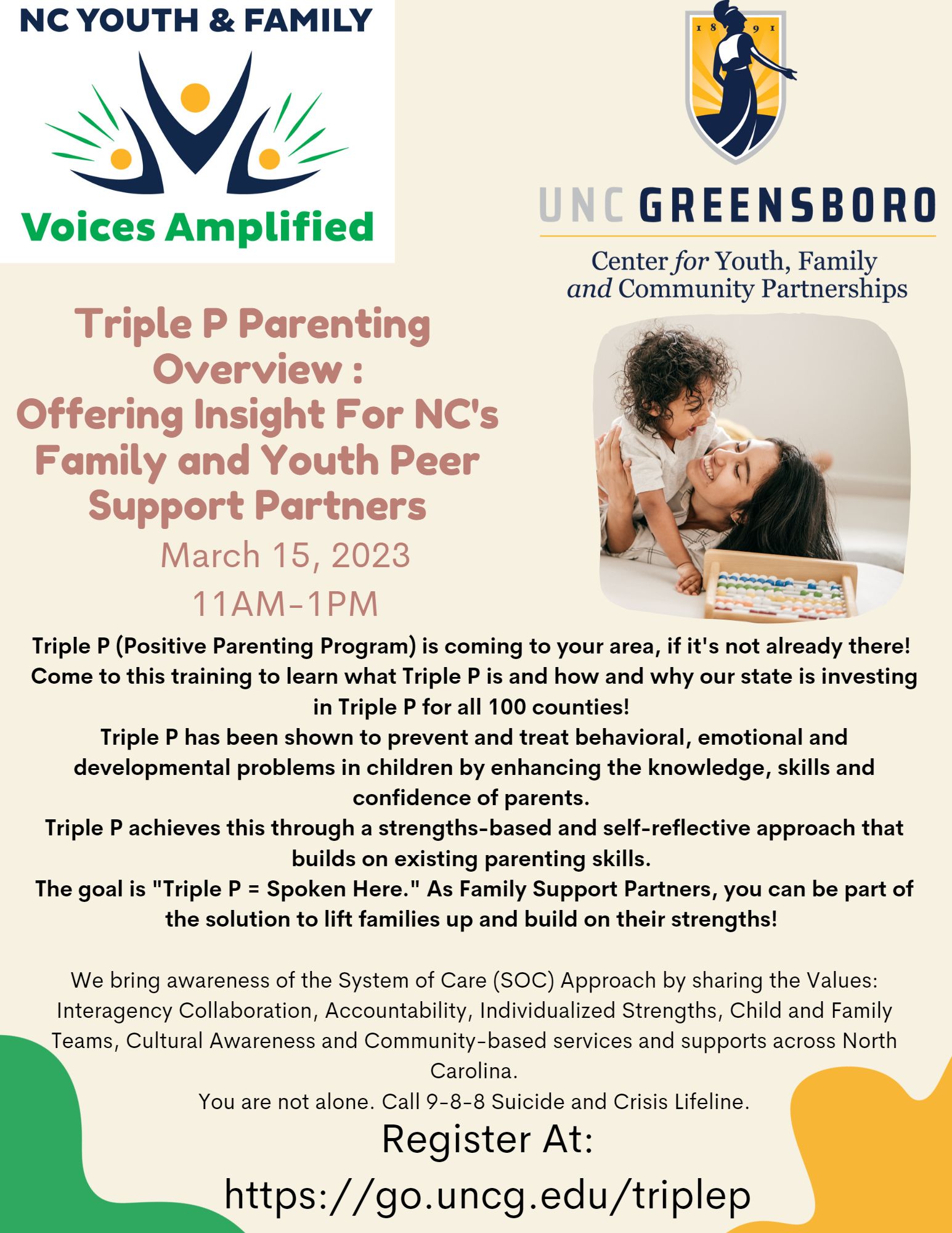
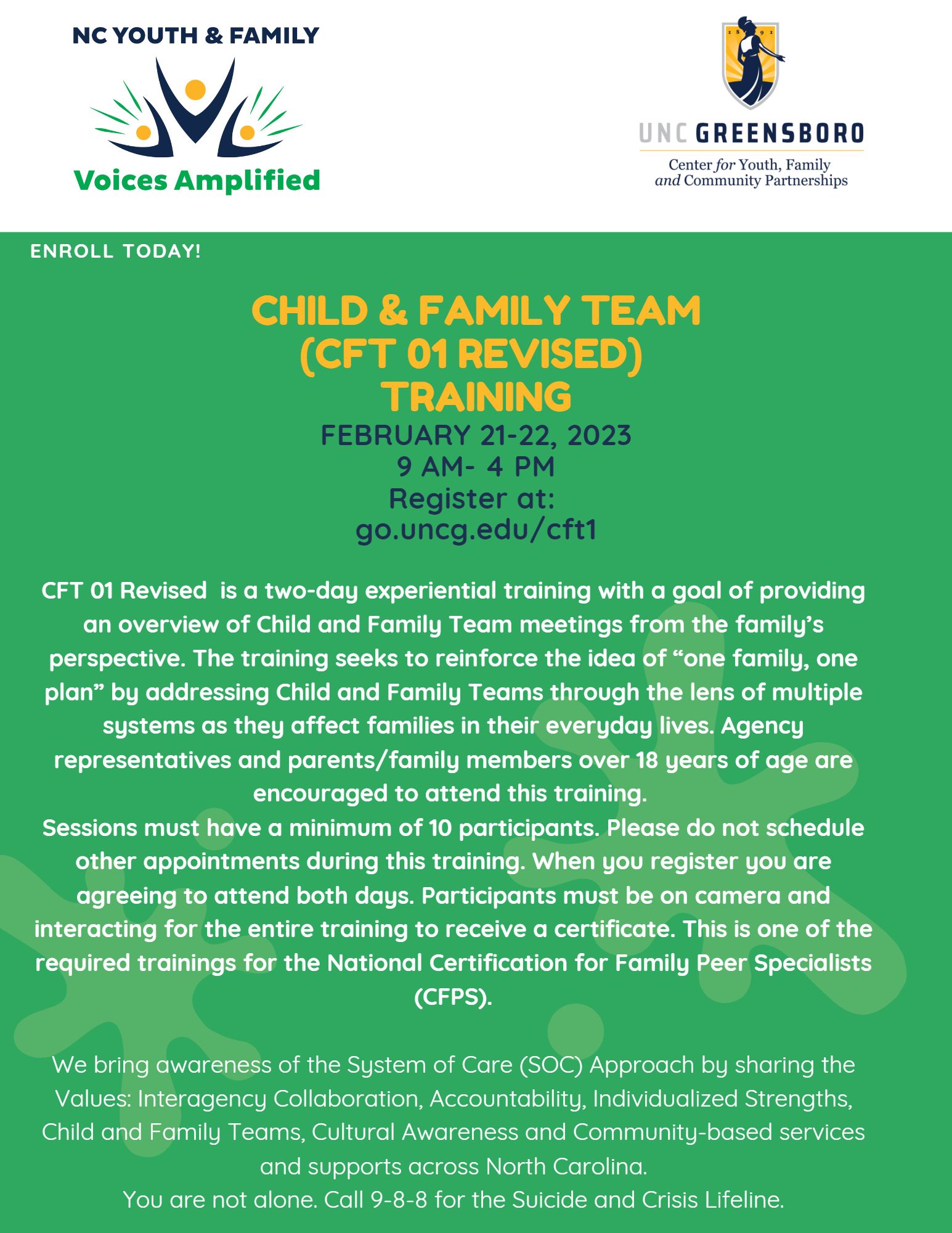 NC Youth & Family Voices Amplified will offer this free, 2-day, virtual training on Child and Family Teams. Participants who complete the program will receive a certificate of completion to document their attendance. See below for additional details:
NC Youth & Family Voices Amplified will offer this free, 2-day, virtual training on Child and Family Teams. Participants who complete the program will receive a certificate of completion to document their attendance. See below for additional details: